Feel free to read on, but please note, this is an older article, and we recently published our definitive guide to trilling in Feb. 2024. Here’s the link to the latest: Decoding Cat Trilling: Understanding the Why, How, and When of Your Feline’s Melodic Communication.
Cats are very expressive animals. Not only do they communicate with each other, but they also communicate with humans. Through their facial expressions, bodies and vocalizations they are able to express themselves and their needs. Trilling is one of the more unusual sounds that cats make. But what exactly is it? What does it mean and why do cats do it?

What Is A Trill And What Does It Mean?
Simply put, trilling is a form of vocalization which cats make in order to express themselves. Of course, cats make a range of different sounds, from meowing to chirps, purrs to hisses. Unlike many of the other sounds however, such as meowing, the trilling sound is produced with a closed mouth. Rather than expel the air, when a cat trills, the air is actually pushed through their vocal cords.
It’s best described as a high-pitched sound, very similar to the soft rolling Rs typically associated with Spanish. Quite often the sound produced is fairly short, lasting only one or two seconds. The trilling sound is usually associated with positive emotions and more high-pitched sounds. On the other hand, meowing can indicate positive or negative connotations and, similarly to purring, tends to be a lower or deeper sound.
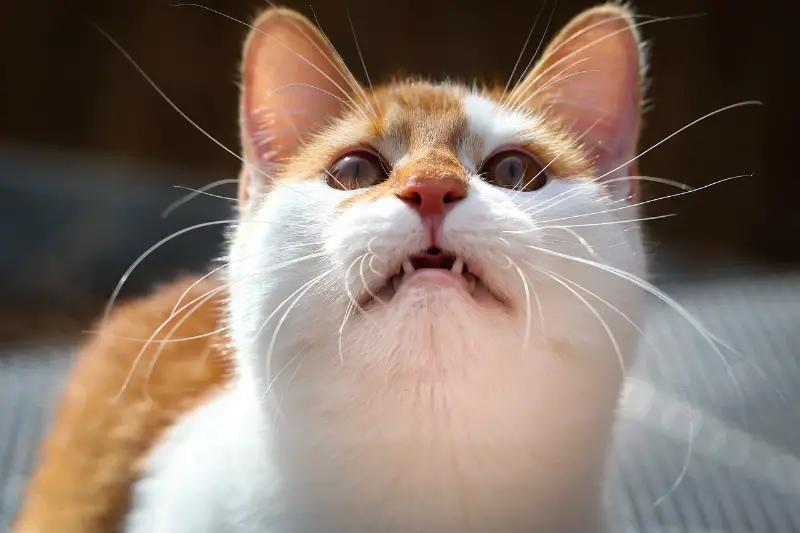
Reasons Your Cat May Trill
Cats trill for a multitude of reasons. Generally, the reasons behind trilling tend to be very positive. A cat’s willingness to trill can, in part, be seen as a sign of their comfort, ease and trust in you.
1. Trilling Between Mother And Kitten
Trilling tends to be mostly used by female cats. This is in part due to the fact that when kittens are very young, the mother cat will often trill at them as a cue to encourage the kittens to follow her or as a strategy to capture their attention. As a result, kittens learn this form of communication early on and, due to their tendency to mimic sounds, will use the trilling vocalization when greeting other animals or people, or when they are seeking attention themselves.
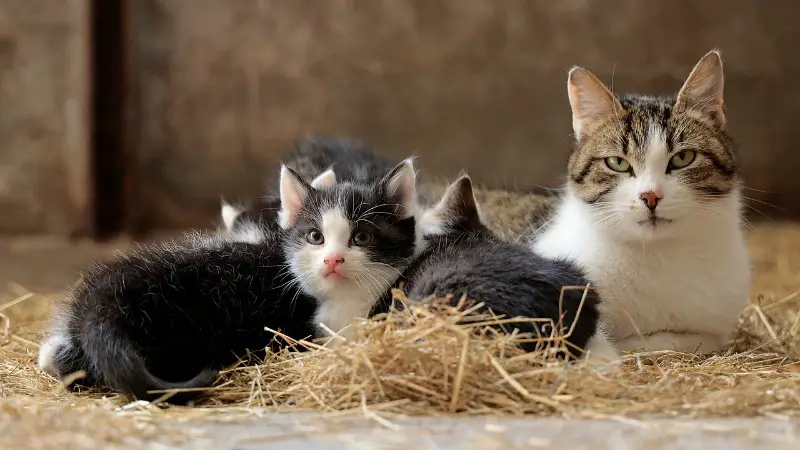
2. A Form Of Greeting
By contrast, adult cats most often tend to use trilling as a way to greet their owners or indeed other cats. Trilling is often used by adult cats as an expression of affection and happiness. You may find your cat also uses trilling as a way to indicate they want you to pet them.
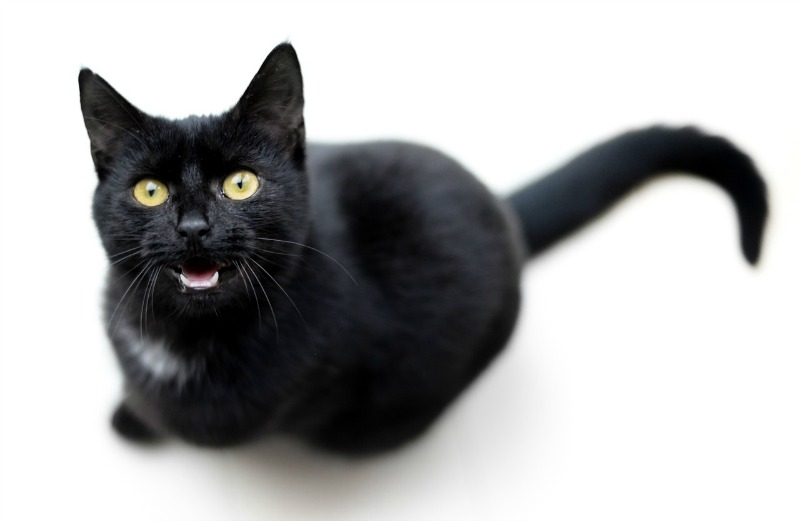
3. Attention Seeking
As well as a sign of affection, trilling can also be a way for your cat to attract your attention.
“If you find that your cat persistently trills at you, they may be seeking your undivided attention,” says Sara Nelms, a pet writer at Boomessays and Paperfellows. “It may be an invitation for you to pet her and spend some time together. If your cat continuous to look at you, whilst moving away and trilling, she may be asking you to follow her. Sometimes cats will use trilling as a way to get your attention so they can show you something.”
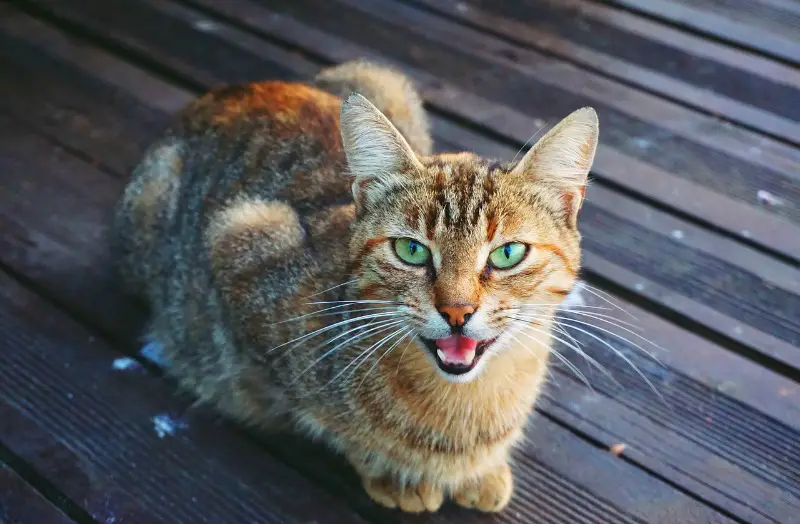
4. A Form Of Communication
The trilling sound is almost always an indication of a positive emotion or form of communication. Cats will use trilling as a way to communicate with other cats, as well as a form of communication with you. As long as you are happy to indulge your cat, you can even spend a few minutes in conversation with them, taking turns to exchange trills.
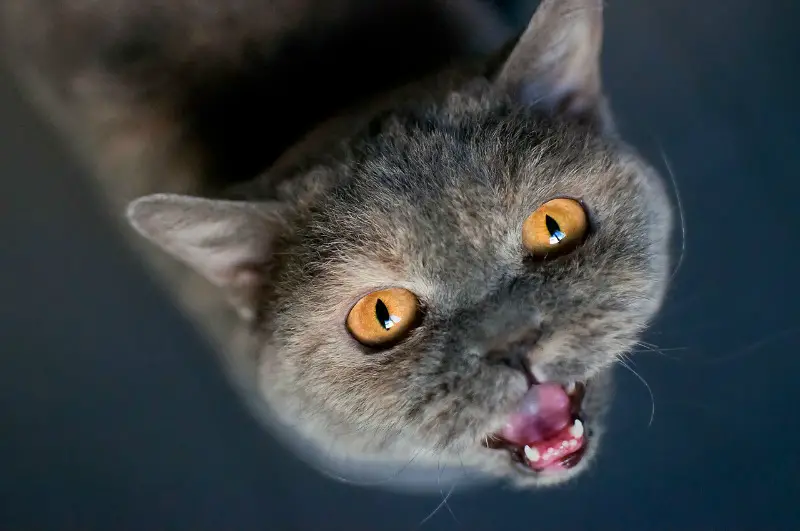
When Is Trilling A Worry?
On the whole, you should treat your cat’s trilling as a positive sign, even a compliment. It usually means they are happy and comfortable in your company. However, if your cat is older or beginning to enter old age, then you should pay closer attention, as their trilling may be an indication of something more serious.
“In some instances, an increase in your cat’s trilling or even sudden, excessive trilling can be a sign that your cat is in pain, is injured or even unwell. Try to establish the reason for your cat’s increased trilling and be sure to address the problem. If you’re not sure whether or not to be concerned, take your cat to the vet,” suggests Paul Martinez, a veterinarian at Thesis Writing and Stateofwriting.
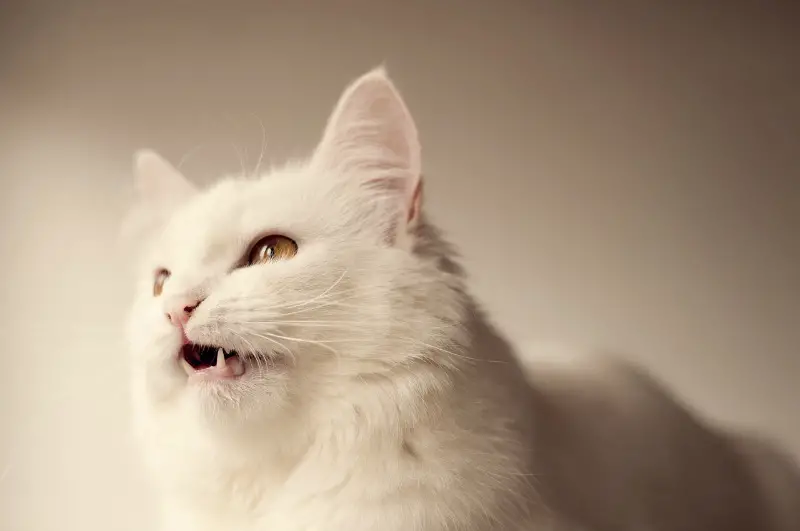
Why Doesn’t My Cat Trill?
Not all cats will trill. For the most part, trilling is also a reflection of your cat’s personality. Cats with livelier, more extroverted personalities will be more likely to trill. On the other hand, if your cat is fairly shy, you may find that they are less likely to trill, as they can find it more difficult to express their emotions. Similarly, some breeds are more likely to trill than others. For example, cats with Maine coon, Siamese or Scottish Fold blood tend to be more talkative.
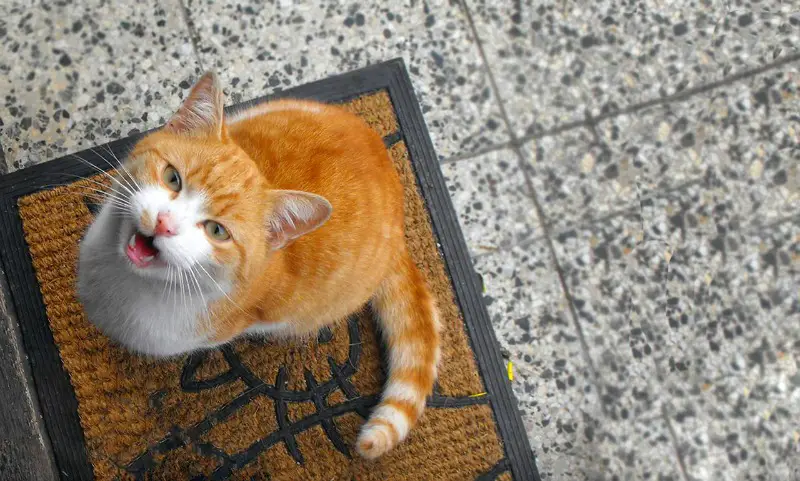
Conclusion
Cats have a range of ways of communicating their needs, as well as expressing their feelings. Trilling is simply another form of communication and typically a positive one. Whether your cat is greeting you, seeking some attention or petting, why not take the opportunity to trill back and engage in some fun communication with your cat?
Author Bio
This guest post was submitted by Beatrix Potter – an accomplished pet writer at Essay Writing Service and Academized. She writes regularly about pets, including guides on pet healthcare and ways to communicate with your pet more successfully. A lifelong animal lover herself, Beatrix enjoys spending time with her two cats. She also works as an online proofreader at Write My Assignment website.

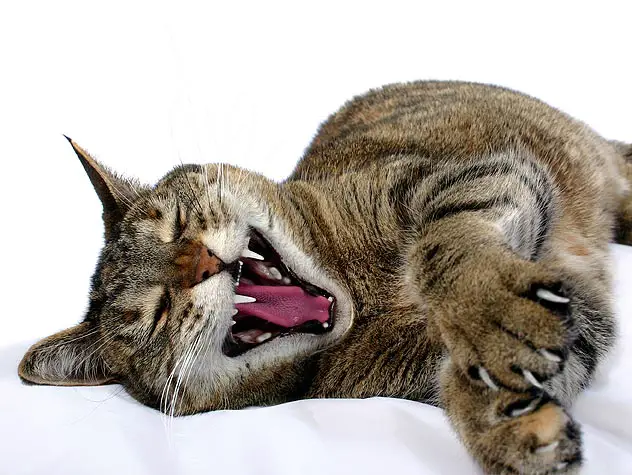
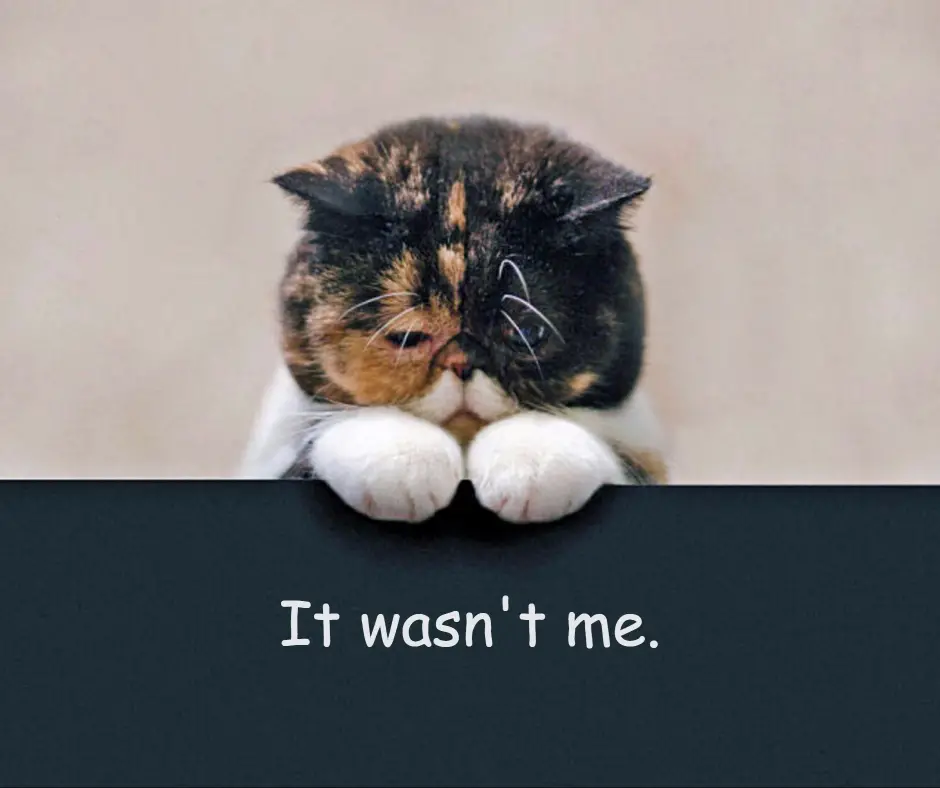
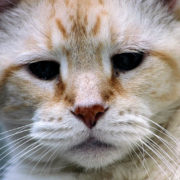
Mickey is 5 years old and doesn’t “talk” much. But if trilling sounds like “proo” then he does this a lot. Mickey is a shelter rescue and when I went to choose him, he was “yelling” his head off to be adopted. He was about 1 year old when adopted. So this trilling, does it sound like “proo” ?
It sounds like peru
Is there an audio of trilling? How is it different from chattering (when a cat sees prey)?
Thanks.
I’m wondering that, too, @amanda, and wishing we could hear an example, too, @Patricia. I’ve always called it “chittering” when cats see a bird or squirrel outside and click their teeth while vocalizing. But some do call that trilling. So I’m just not sure if there’s a difference.
My three Maine Coons that have very recently passed all trilled all the time, and you learn the trill of each cat.
My last Maine Coon sadly now trills because he is ill and sometimes forgets where he it. I don’t have the money to “fix” him, but I will love his sound forever. I would give anything to hear all fours sound again.
Always very interested in learning how our Feline Babies communicate, with US and each other!!!! Very Nice Prize, thank you for offering this!!!
To me there is no better sound than a happy cat trilling at you. Well it either means happy or its hungry 🙂
Really enjoyable read.
Indeed.
Trilling sounds like a purr and meow combined. Kind of like brr-ow or brre-ow. I had a Maine Coon that trilled all the time.
Trilling is definitely different than chattering. It sounds similar to a dove cooing, almost 🙂 And they are very short, but usually repeated.
My 6 month old cat is very playful, loves her tunnel toy, she was born April 13th her momma died when her and 2 brothers when they were 2 weeks old, they were bottle fed, she was about 5 weeks eating dry food when I got her she is long, lean her tail is about 11” long, she has a little extra hair on top of ears like a bob cat, she is short hair I notice when she scared her tail puffs out, she makes cooing noises she comes when I call her, I kennel her at night, I’m a health care provider and need my sleep she has had her shots & spayed, when she is beside me she puts her paw on my face, she is an inside cat I put a harness and leash when outside, she has funny antics she likes to scoop water out her heavily water bowl licks her paw do you have any suggestions for that ??? She is a smart cat, I do give her treats (temptation) she has toys, scratch post
Hi Patricia! Your cat Mickey sounds adorable, and no doubt adores you to the moon and back for adopting him! 💖 For a Great example of what cat trilling sounds like, I highly recommend you go to YouTube and enter ‘OwlKitty’ in the search bar, and in particular, watch the hysterically funny ‘Lord of the Rings’ parody. You’ll hear LOTS of trilling going on in that particular video! But be
forewarned: These incredibly funny and clever cat
videos are highly addictive to watch!! Enjoy. 💕
I always called it “murring”,but when I read the description of thrilling they seem to be exactly the same. My Charlie who is older but in good health does it constantly in my presence. he will follow me around the house and murr. I thought it was for food but then I figured out he wanted attention. he usually sits on my lap but sometimes my little dog won’t let him so I guess he just wanted to tell me he wants some attention!
My 3 yearold female Gracie although not true Maine Coon has certain similar attributes as indicated above and exhibits them all in certain circumances. She usually chatters when she sits inside my bedroom window as it gets light and she is able to observe the bird activity outside increasing. The majority of the time when wanting food or to go out she has various miaows to suit the situation. She reserves trilling for when she has found somewhere comfortable to sit quietly and I come along and talk to her. Finally she not only hisses but occasionally growls at other cats.
My 10 month old kitten Daisy has been trilling since I adopted her and her brother (Bubbles) when they were 8 weeks old. Bubbles is the cute silent type but Daisy never shuts up lol! She walks around the house trilling and chirping all day, every day. She is happy and healthy and as far as I can tell just likes to “chat” 🙂 I often trill back and she responds.
My cat has 3 week old kittens. She seems to be making this sound all the time and she looks like she’s searching for something. And rubbing her face on everything. It’s really loud and quite annoying in the middle of the night, but if it’s a sign she’s happy (I hope), it’s made me feel a bit better!!
My one year old rescue cat trills whenever he sees me… especially if he’s been out all day or first thing in the morning, it’s sooo cute! We have just got a new kitten and he has taken to her straight away and trills at her too – when he sees her after being away from her for so long and when he’s in a playful mood and wants her to come and play. Best sound ever!!
It shocked me when I heard it the first time. Thought a dolphin showed up in my bedroom. If that gives an idea of what this can sound like? It’s only happened 2 or 3 times so far, as produced by a 10 month old Angora kitten, whilst looking at her own kitten from atop my bedside table. Yes, she was pregnant when I rescued her. Poor beautiful elegant dolphin darling. I wonder what else they do. Did NOT expect this chatty girl to come out with cool
Dolphin speak. She did not move her mouth. FYI.
Most cats will dip their paws in water and then lick their paws. I think it is just normal cat behavior. i see my girls do it all the time. Just enjoy observing them, so amazing.
Trilling can sounds different from each cat, but mine is a Mainecoon, so hers sounds like you’re rolling your tongue a lot whereas chirps are open mouthed and quick clicks.
Our boy Batman trills. Sounds like he’s rolling is r’s, and he finishes with a meow. So it’s rrrrrrrrmeow. Almost always after he’s eaten and seems really content.
My 8 month old kitten trills when she’s being naughty or playing… didn’t see this mentioned I the article and wondering if it’s normal. Maybe it’s an attention thing and she wants me to play with her?
Chittering and trilling are two different sounds.
My cat both chitters (we live near water with lots of birdlife) and trills. Chitter is kind of like a cat meowing while shivering. It clacks its teeth/lips together and makes short bursts of sound, sometimes even smacking lip sounds. Trilling sounds like purrrr-oww with a rolled “r”. At least that the best imitation I can make of it.
The first time my little girl made that sound it freaked me out I had never heard a cat make that sound before. I am so glad it is a happy sound Siren trills every day and it is always during something she loves.Cats are amazing animals
our Lucy is 13 old and sound like “brrip”
is this a “trill”?
Thanks & regards J&D
Our beloved angel Nikki T. was such a triller that that “T” stands for, well, Triller! <3
I loved this post! I never noticed my cat trilling before, but now I see it’s such a sweet way for her to communicate. I appreciate the insights on the different contexts for trilling—it makes me feel more connected to her! Thank you for sharing this information!
What an interesting read! I never knew cat trilling had such meaningful nuances. It’s fascinating how our feline friends communicate in their own unique ways. I’m definitely going to pay more attention to my kitty’s trills from now on!
I absolutely loved this post on cat trilling! It’s fascinating how such a simple sound can convey so many feelings. I never realized my cat was using trilling to communicate her happiness. Thanks for shedding light on this adorable aspect of feline behavior!
I loved this article! I’ve always noticed my cat trilling and wondered what it meant. It’s fascinating to learn that it’s a form of communication and can indicate so many different emotions. I’m definitely going to pay more attention to her vocalizations now! Thank you for shedding light on this adorable aspect of cat behavior!
I never knew cat trilling could mean so much! It’s fascinating to learn how this unique vocalization reflects their emotions and communication style. I can’t wait to see if my cat starts trilling more often after reading this! Thanks for the insights!
I never realized cat trilling had such an interesting meaning behind it! It’s fascinating how much communication happens in such a small sound. My cat does this when she’s excited to see me, and now I understand it’s her way of expressing joy. Thanks for the insights!
I loved this post! I’ve always wondered what my cat was trying to tell me with all the trilling. It’s fascinating to learn that it’s more of a communicative sound rather than just a random noise. I’ll definitely pay more attention to her trills now!